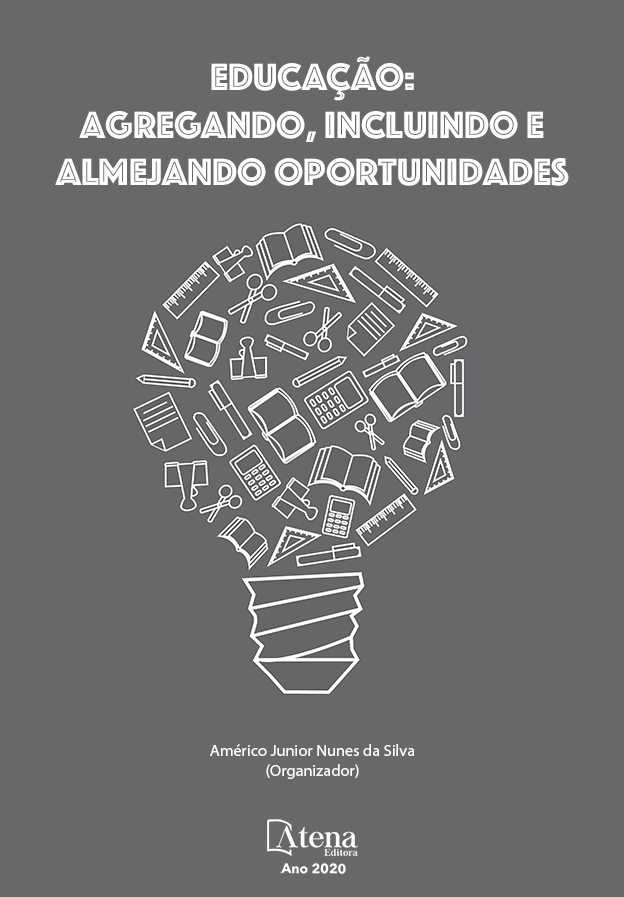
OPORTUNIDADES NA EDUCAÇÃO MATEMÁTICA: PORQUÊS MATEMÁTICOS NO ENSINO SUPERIOR
Discutimos anteriormente em Lins, Lorenzato e Sousa (2018b) os por quês matemáticos levantados por alunos do ensino superior, especificamente por 13 graduandos entre 4º e 9º períodos do Curso de Licenciatura em Matemática da Universidade Estadual da Paraíba. O levantamento dos por quês matemáticos se deu durante um componente curricular. Neste capítulo discutimos os porquês (respostas elaboradas) de alguns dos por quês (perguntas levantadas) dos graduandos e apresentamos a opinião deles sobre a atividade realizada. Nossa análise se deu sob as categorias de Lorenzato (1993). O todo diz respeito ao projeto de pesquisa colaborativo PROPESQ entre UEPB e UNICAMP. Os resultados indicam que a maior parte dos por quês matemáticos levantados e dos porquês pesquisados são de caráter conceitual e convencional. Os graduandos afirmaram ter sido positiva a realização da atividade, pois fez com que eles pudessem pensar em por quês (dúvidas) matemáticos, discuti-los e pesquisá-los com os colegas. Faz-nos entender que devemos cada vez mais pensar em propostas de trabalho como esta em nossos cursos. Cada vez mais necessitamos expor nossos alunos, colocá-los a falar, a perguntar, a questionar, a buscar respostas, a compartilhar, a trabalhar em sala de aula de forma colaborativa com os colegas e com o docente, pois acreditamos que só assim poderemos combater as lacunas já existentes desde seus ingressos no curso e ao decorrer. Precisamos urgentemente mudar nosso agir pedagógico, didático e metodológico em aulas do ensino superior, em especial quando se diz respeito em formar professores de Matemática, como em nosso caso.
OPORTUNIDADES NA EDUCAÇÃO MATEMÁTICA: PORQUÊS MATEMÁTICOS NO ENSINO SUPERIOR
-
DOI: 10.22533/at.ed.18420250922
-
Palavras-chave: Educação matemática, Por quês matemáticos, PROPESQ, UEPB, UNICAMP
-
Keywords: Mathematical education, Mathematical why, PROPESQ, UEPB, UNICAMP.
-
Abstract:
We previously discussed in Lins, Lorenzato and Sousa (2018b) mathematical whys raised by higher education students, specifically by 13 undergraduate students between the 4th and 9th periods of the Mathematics Degree Course at the State University of Paraíba. The survey of mathematical whys took place during a curricular component. In this chapter we discuss the becauses (elaborated answers) of some of the whys (questions raised) of the students and their opinion about the activity performed. Our analysis took place under the categories of Lorenzato (1993). The whole concerns the PROPESQ collaborative research project between UEPB and UNICAMP. The results indicate that most of the mathematical whys raised and the becauses researched are of a conceptual and conventional character. The students stated that the activity was positive, because it made them think about mathematical whys (doubts), to discuss them and to research them with their colleagues. It makes us understand that we must increasingly think about job proposals like this in our courses. We increasingly need to expose our students, to get them to speak, to ask, to question, to seek answers, to share, to work in the classroom in a collaborative way with colleagues and with the teacher, because we believe that this is the only way we can combat the gaps that already exist since their enrollment in the course and during the course. We urgently need to change our pedagogical, didactical and methodological actions in higher education classes, especially when it comes to Mathematics teacher education, as in our case.
-
Número de páginas: 15
- Sergio Lorenzato
- Danielly Barbosa de Sousa
- Abigail Fregni Lins


